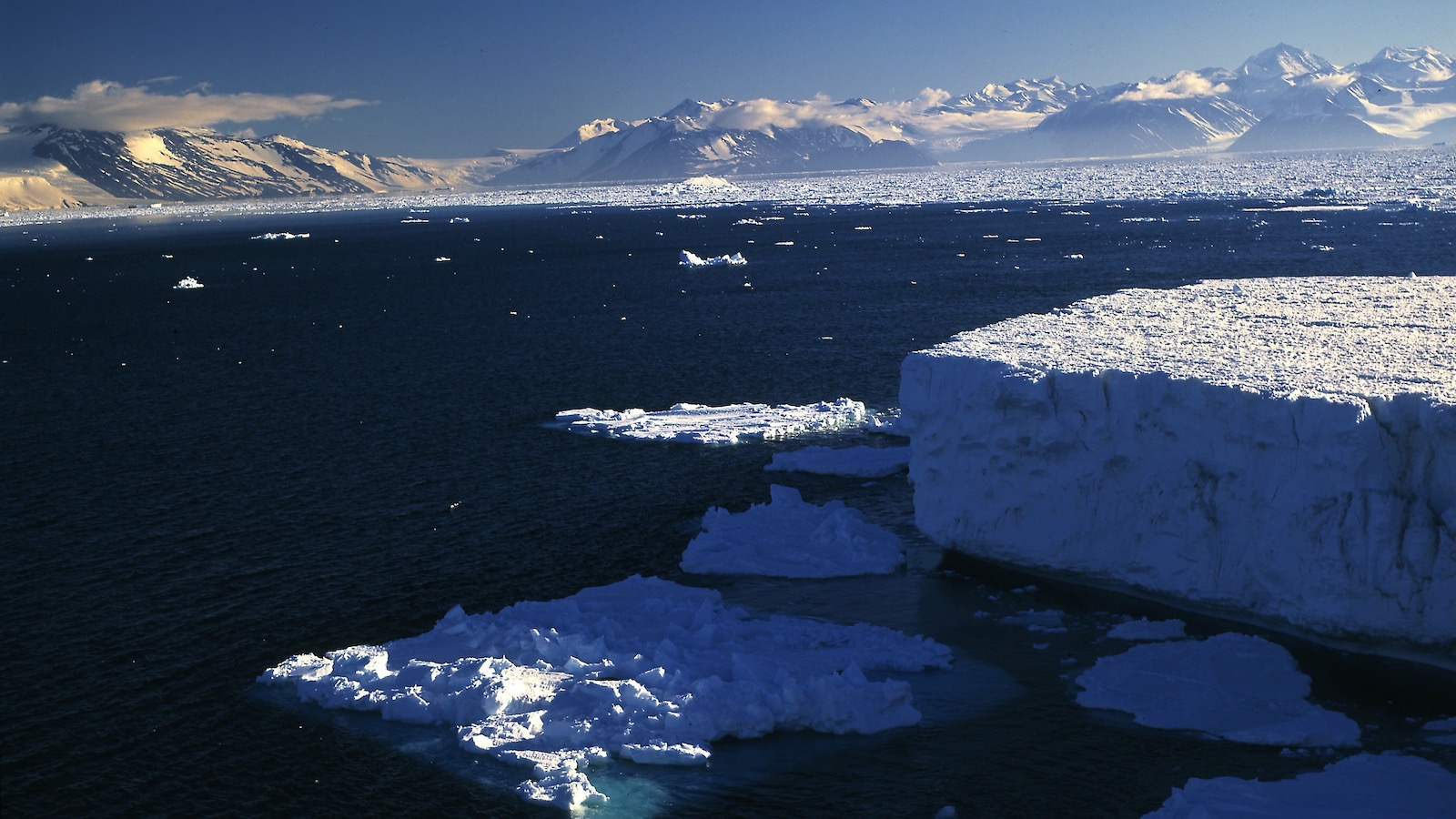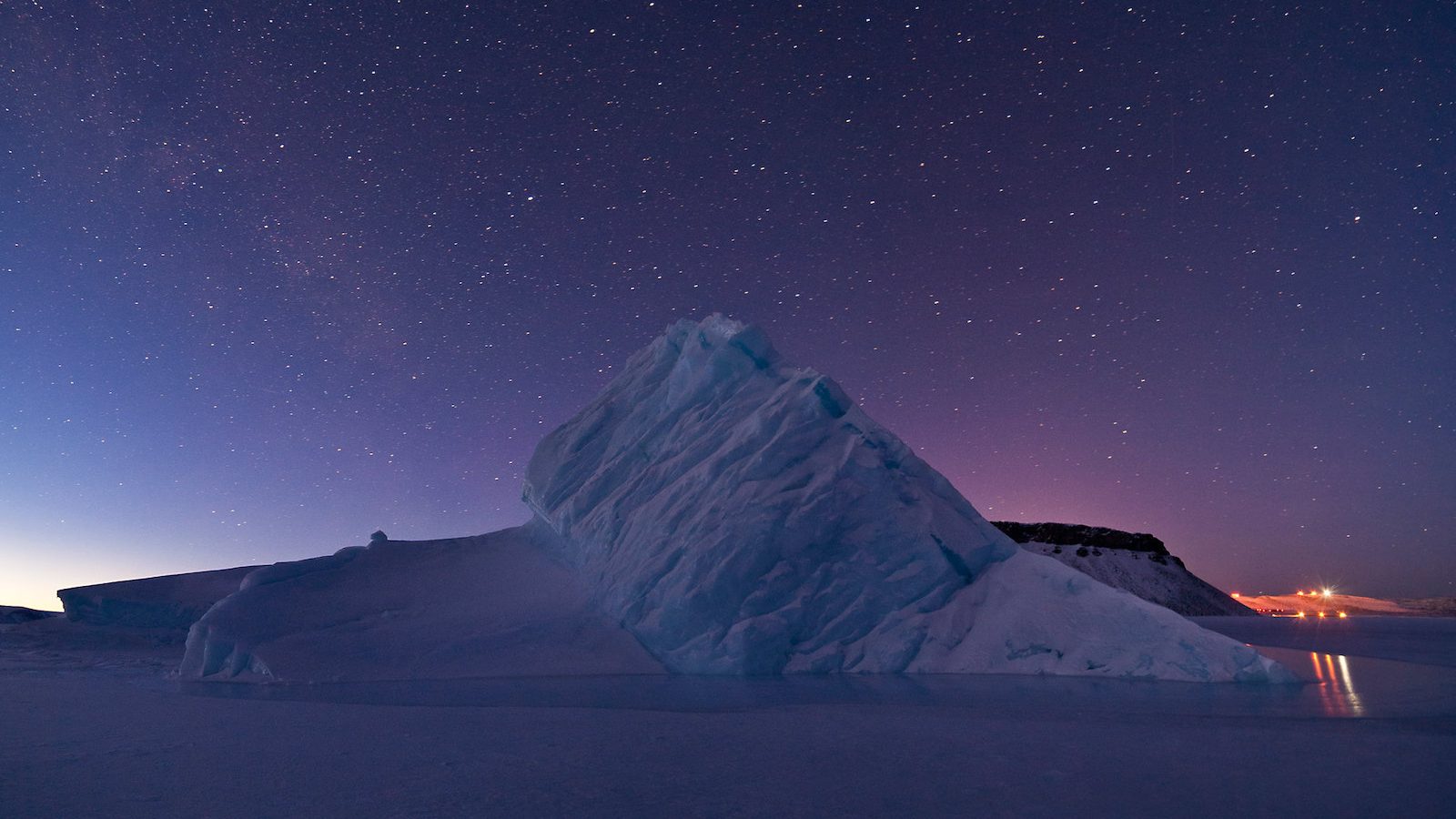As Antarctic ice melts, all of that fresh water pours into the ocean, essentially diluting it by reducing its salinity. That, in turn, is dramatically slowing the currents that, like a conveyor belt, carry oxygen, carbon dioxide, and nutrients through the sea and around the world.
A study published last week in the journal Nature modeled the impacts of this phenomenon, called overturning circulation, on the deepest ocean currents, particularly in the southern hemisphere. It found that the world is on the verge of a potentially catastrophic slowdown, which could have a devastating effect on climate change, marine ecosystems, and the stability of Antarctic ice.
“Our modeling shows that if global carbon emissions continue at the current rate, then the Antarctic overturning will slow by more than 40 percent in the next 30 years, and on a trajectory that looks headed towards collapse,” lead researcher Matthew England, an oceanographer and climate scientist at the University of New South Wales, said at a new conference announcing the findings, according to BBC.
The researchers discovered that these currents are at their weakest point in more than a millennium. Although scientists have been discussing the possibility of a total shutdown of these currents within centuries, the study found that such a scenario could play out by the end of the century.
These currents play an essential role in oceanic health by circulating water from the surface to the depths and back. In addition to carrying heat, oxygen, and nutrients to keep the marine ecosystem nourished, they play an important role in sequestering carbon from the atmosphere deep below the surface.
“If the oceans had lungs, this would be one of them,” England said.
But a growing influx of fresh water from melting ice is reducing the salinity and density of seawater. That inhibits its ability to sink, slowing the overturning circulation that submerges atmospheric carbon and instead leaving it near the surface, limiting the ocean’s ability to absorb more of the greenhouse gas. Researchers believe this could lead to deep-water warming in southern oceans and could create a positive feedback loop — warming waters lead to greater ice melt, which releases more fresh water into the sea.
Beyond the climate implications, the slowing of these currents will inhibit the flow of nutrients through marine layers, impacting the food chain and oxygen-producing phytoplankton. The resulting warmer waters could further change rainfall patterns around the world, disrupting agriculture and supply chains. The researchers warn that it’s difficult to know how linear the process is, or whether these changes could accelerate.
According to an IPCC report on oceans and climate change, a slowing of marine currents can cause abrupt, and potentially irreversible, climate change on the timescale of a human lifespan. Furthermore, most models don’t consider the complexities of global climate systems and can fail to account for abrupt, cascading change. The IPCC has argued for years to hold global climate change at 1.5 degrees Celsius, a goal that would require an increasingly rapid shift away from fossil fuel use and a world that’s already warmed by 1.1 degrees. According to the panel’s latest report, by 2035, the globe must curtail fossil fuel emissions by 60 percent compared with 2019 levels to stay under the target — but with numerous new massive extraction projects underway, overshoot scenarios are increasingly possible.




